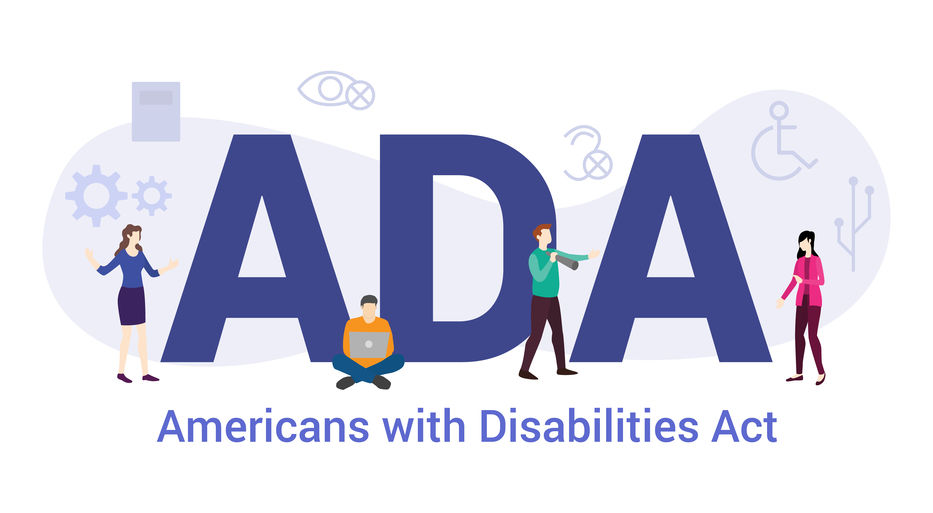What is the ADA?
In 1990, the Americans with Disabilities Act (“ADA”) was implemented to provide equal opportunity and assurance to individuals with disabilities. Businesses, places of employment, and governments serving the general public are required to accommodate those with disabilities of various sorts. Disabilities specified in the statute range from vision and hearing impairments, walking incapacities, to speech impediments, the list goes on. When Congress passed the ADA into law, the age of the internet was merely just in its infancy. Hence, with the growing era of technology, the internet has prospered into a widely used mechanism, prompting ADA compliance from websites as well. Not only are public buildings required to comply with ADA accommodations, but plenty of websites and mobile applications are now required to comply as well.
Are all Websites Required to be ADA Compliant?
Businesses that render themselves “public accommodations” within the meaning of the ADA are also included in compliance. Public accommodations range anywhere between hotels and shopping plazas to banks, hospitals and public transportation.
As for web access, the Eleventh circuit has concluded these particular decisions by using the “nexus” test. Florida has held that if a website has a “nexus” or connection to a physical location of public accommodation, then the ADA applies. Therefore, these websites are considered facilities under Title III of the ADA. A Plaintiff in Gil v. Winn Dixie Stores, Inc. was a blind individual who wanted to locate Winn Dixie stores online and refill his prescription online, so that he would not need to orally announce his medications to protect his privacy under HIPPA. The court held that the website needed to be ADA compliant because it had a nexus to a place of public accommodation and impeded a disabled person’s ability to enjoy Winn Dixie’s services in-store. The plaintiff could not enjoy the service of walking to the pharmacy window and simply picking up his prescription.
How do I make sure my Website is ADA Compliant?
The ADA is an intentionally broad and flexible statute. Although there are no defined or codified regulations for website accessibility, many jurisdictions have evaluated what it means for a website to be ADA accessible in a plethora of variations. There is one thing every jurisdiction can agree on, and that is the ability to ensure “reasonable accessibility” for those who have disabilities. With the help of an experienced IT individual or business, your corporate website may become ADA complaint fairly easily.
Reasonable accessibility is usually focused to ensure that individuals who are hard of hearing or visually impaired have an easy approach to navigate through a website at their leisure, just as if an individual who doesn’t have these impairments can. For a better understanding of what this can pertain, one helpful tip is to take a look at government or federal agency web sites. These websites will demonstrate ADA compliance standards that may help you when developing your own ADA compliant web site. Common ways that businesses address these accessibility standards are by creating web content such as images with audio descriptions and audio and video files with alternative written descriptions. Text transcripts are very important if your website is mainly auditory or visual images. Same goes for websites that mainly contain text sources, audio alternatives should always be included for those who are visually impaired.
What are the Legal Consequences for Having a Non-ADA Compliant Website?
As the issue of ADA compliant websites become more apparent, so does the legal recourse that comes with failure to comply. To avoid any kind of business loss or legal action taken against you and your company under this federal statute, businesses are encouraged to take action as soon as they can. More importantly, companies can miss out on business opportunities when their websites are not compliant because ADA protected individuals are unable to utilize them. Moreover, this compliance insulates you from being targeted by a costly federal lawsuit.


